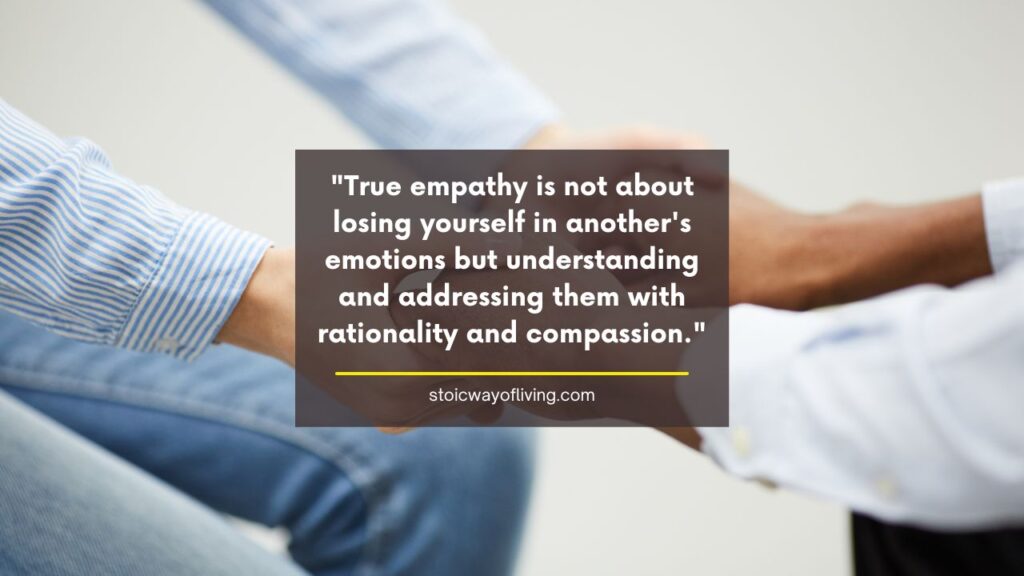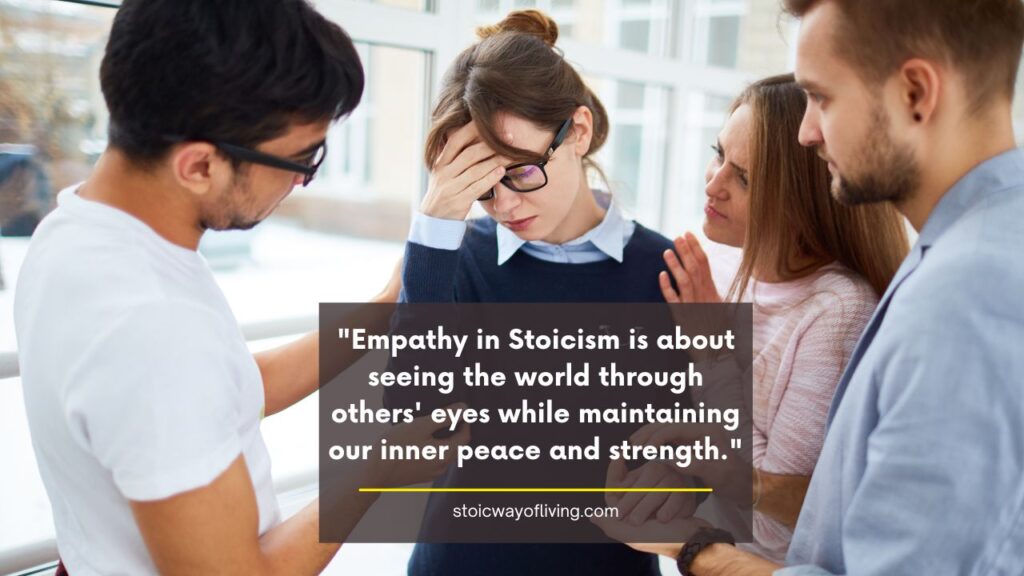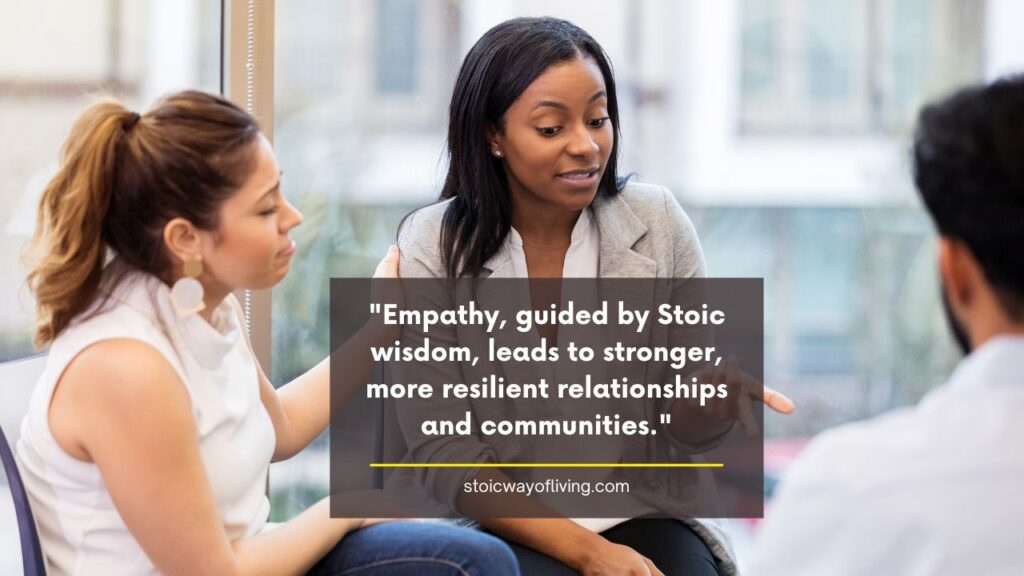Empathy, often seen as the ability to understand and share another person’s feelings, is a significant concept in Stoic philosophy.
Contrary to the misconception that Stoicism is devoid of emotion, the teachings of Marcus Aurelius, Seneca, and Epictetus reveal a profound respect for empathetic engagement.
This article explores the Stoic perspective on empathy, demonstrating that Stoicism provides valuable insights and practical methods for cultivating empathy in a balanced and resilient manner.
Understanding Empathy in Stoicism

Stoic philosophy, which originated in ancient Greece and Rome, aims to achieve eudaimonia, or flourishing, through the cultivation of virtue.
Central to this philosophy are the concepts of sympatheia and oikeiosis.
Sympatheia refers to the interconnectedness of all things, fostering a sense of universal empathy. Oikeiosis describes the process of recognizing and nurturing our connections with others.
Stoics differentiate between destructive passions (pathē) and rational emotions, advocating for the latter.
They believe emotions are natural but should be governed by reason to avoid destructive behaviors.
Empathy, in this context, is seen as a rational extension of our social nature, promoting harmonious relationships and societal well-being.
The Role of Rationality in Empathy

In Stoicism, rationality plays a crucial role in empathy. Rather than reacting impulsively to others’ emotions, Stoics advocate for a measured, thoughtful response.
Emotional regulation, a critical Stoic practice, involves recognizing and managing one’s emotions to maintain clarity and composure.
Cognitive distancing, another Stoic technique, helps individuals gain perspective on a situation, allowing them to understand others’ feelings without becoming overwhelmed.
The virtue of wisdom guides Stoics to discern the appropriate empathetic response, balancing emotional engagement with rational thought.
This approach ensures that empathy is constructive and supportive rather than enabling or self-destructive.
Practical Stoic Techniques for Cultivating Empathy

Stoicism offers several practical techniques for developing empathy.
Practicing prosoche, or mindful attention, helps individuals focus on the present moment and truly listen to others. This attentiveness fosters more profound understanding and connection.
Imagining others’ perspectives, a joint Stoic exercise, involves putting oneself in another’s position to appreciate their experiences and emotions.
Reflection and journaling, integral Stoic practices, encourage individuals to contemplate their interactions and consider how to respond empathetically.
Regularly engaging in these practices can cultivate a balanced, rational empathy that enhances your relationships and personal growth.
Empathy in Action: Stoic Exemplars

Historical figures like Marcus Aurelius and Seneca exemplify the Stoic approach to empathy.
In his Meditations, Marcus Aurelius often reflects on the importance of understanding and kindness towards others despite their flaws.
In his letters, Seneca emphasizes the value of compassion and support within the framework of Stoic rationality.
These examples demonstrate that empathy, guided by Stoic principles, leads to more robust, more resilient relationships.
In modern times, Stoic practices are applied by leaders and individuals who seek to balance empathy with rational decision-making.
This balance helps them navigate complex social dynamics effectively, fostering a supportive and constructive environment.
See also: Building a Stoic Morning Routine – What You Need to Do!
Conclusion
The Stoic approach to empathy, grounded in rationality and virtue, offers a robust framework for understanding and connecting with others.
By regulating emotions and practicing mindful attention, you can cultivate a balanced empathy that fosters personal and social well-being.
If you’re looking to deepen your understanding and practice of empathy, I highly recommend checking out Judith Orloff’s book The Genius of Empathy: Practical Skills to Heal Your Sensitive Self, Your Relationships, and the World. Dr. Orloff’s neuroscience, psychology, and energy medicine insights provide practical tools for discovering and nurturing your empathic abilities. Check it out on Amazon!


